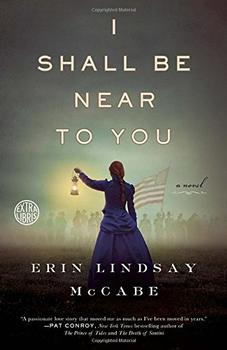Summary | Excerpt | Reading Guide | Reviews | Beyond the book | Read-Alikes | Genres & Themes | Author Bio

A Novel
by Dara HornDara Horn's third novel, All Other Nights, shimmers with emotion and
historical detail. Set amidst the tumult of the Civil War, Jacob Rappaport is on
a quest to find himself. When he flees his parents' wealthy New York life, he
knows little of himself or the world. His journey takes him into the bowels of
evil, self-loathing and despair; yet there is redemption to be found as well as he
struggles to make sense of love and duty.
What makes Jacob Rappaport so incredibly interesting is that he is a villain
without even realizing it. Though he comes from a religious tradition that
values free will, Jacob, in the beginning, has little understanding that he
actually has it. Desperate to be taken seriously by the Union Army because he
has been discounted by his father his entire life, he quickly agrees to kill his
uncle, a Rebel suspected of plotting to assassinate Lincoln. After his uncle's
death, he is given another task – to marry a spy – which he accepts with the
same alacrity. Jacob is able to kill his uncle because he turns him into an
object and a pathetic character. Yet, Jacob's ability to step away from his
emotions in the face of duty becomes increasingly difficult as he falls victim
to the charms of Eugenia Levy and her sisters. His parents' cold house was
devoid of love and honesty, but in the Levy home – though there is much illusion
and deception – there is also a warmth and kindness that he has never known.
There have been many Civil War novels that center around lovers in
the delusional South. Horn's rendering allows us to see this epic moment in
American history from a different perspective. The central characters of the
tale are Jewish, and their experience with the South's beliefs about slavery
cast a new light on the old story of the War Between the States. Jacob's
Northern experience echoes our modern feelings about slavery and the Southern
delusion. The reader will marvel, just as Jacob does, at the Southerners in
All Other Nights discussing the Hebrews' flight from slavery as black slaves
serve them dinner at Passover Seder. Jacob notices, just as the reader does,
that though Judah Benjamin, Secretary of State for the Confederacy, was Jewish,
anti-Semitism was rampant in the North and South. The story of the Civil War is
so often told in black and white that it is revelatory to see it from an
alternative perspective. Horn's deft movement between fiction and history
illuminates a new corner of this epic tale.
Ultimately, All Other Nights is a story of suspense and love.
Jacob Rappaport's journey to self-discovery and redemption is a page-turner, one
that should not be missed.
About the Author
Dara Horn is also the author of
In the Image (2002) and
The World To Come (2006). She was born in New Jersey in 1977 and received her Ph.D in comparative
literature from Harvard University in 2006. She has received a variety of
critical accolades and awards for her work, including the National Jewish Book
Award, and was named on the of Best Young American Novelists by Granta Magazine.
She has taught Jewish Literature and Israeli history at Harvard and at Sarah
Lawrence College and has lectured at universities around the country. She lives
with her husband and three children in New Jersey.
![]() This review was originally published in The BookBrowse Review in April 2009, and has been updated for the
March 2010 edition.
Click here to go to this issue.
This review was originally published in The BookBrowse Review in April 2009, and has been updated for the
March 2010 edition.
Click here to go to this issue.

If you liked All Other Nights, try these:

by Erin Lindsay McCabe
Published 2014
I Shall Be Near To You is the intimate story of the drama of marriage, one woman's amazing exploits, and the tender love story that can unfold when two partners face life's challenges side by side.

by Johanna Moran
Published 2010
Exploring the intricacies of marriage, the construction of family, the changing world of the late 1800s, and the strength of two remarkable women, Johanna Moran turns this unusual family’s story into an unforgettable page-turning drama.
Your guide toexceptional books
BookBrowse seeks out and recommends the best in contemporary fiction and nonfiction—books that not only engage and entertain but also deepen our understanding of ourselves and the world around us.